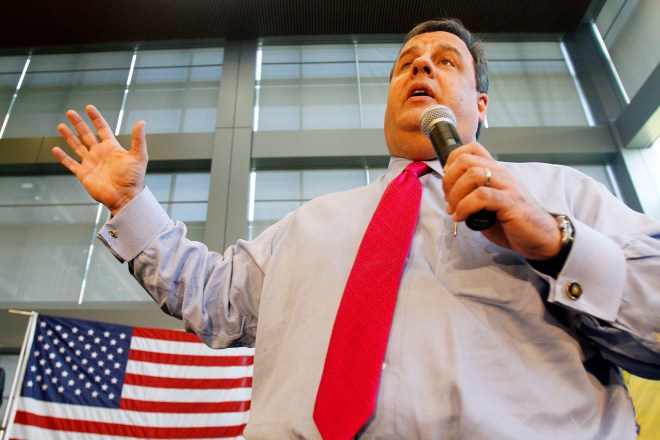Yglesias looks at what isn’t in Obama’s budget:
There’s no entitlement reform. There’s no Obama negotiating with himself. There’s no bending over backwards to look reasonable to his adversaries or to centrist pundits. Every previous Obama budget has been about positioning himself for a legislative or electoral showdown. This one isn’t.
And while It would be an overstatement to call it a liberal dream budget — left-wing Democrats could dream up plenty more — for the first time it’s really Obama’s dream budget. This is the end of the “grand bargain” era, and instead an opportunity for Obama to lay out his priorities for the long term — from transportation infrastructure to transforming child care. Rather than position himself in advance of a potential compromise, he wants to outline his vision for a future that will extend well beyond the life of his administration.
Among John Cassidy’s takeaways:
With the Republicans controlling both chambers of Congress, the budget is as much a political document as an economic one. The chances that it will be enacted in anything like its current form are nil. Instead, the White House is using it to frame the political debate for this year and for the run-up to the 2016 Presidential election—an effort that began with the State of the Union address. The budget fleshes out the populist political agenda that President Obama laid out in that speech.
Vinik analyzes Obama’s proposed tax on foreign profits. The money generated would be used to upgrade America’s infrastructure:
American companies currently hold nearly $2 trillion in profits overseas, refusing to repatriate them in order to avoid billions of dollars in taxes. The U.S. corporate tax system taxes all profits at 35 percent, including foreign profits with a credit for taxes paid in the foreign country. For example, suppose a foreign subsidiary of a U.S. company pays a tax rate of 10 percent to the foreign country. When that company repatriates those profits, it must pay a tax rate of 25 percent to the federal government (35 percent minus 10 percent). Instead of repatriating those profits, U.S. companies have stashed the money abroad. The White House is proposing a one-time, mandatory tax of 14 percent on that $2 trillion, no matter if the U.S. companies repatriate the money or not. That will bring in the $238 billion in revenue—money earmarked for Obama’s infrastructure plan.
C.R. at the Economist is wary of this proposal:
The 14% one-off tax on corporate earnings overseas was a figure probably chosen to cover roughly half of the cost of Mr Obama’s $438 billion infrastructure programme (that tax is supposed to raise about $240 billion), rather than really encourage firms to invest more at home. The budget also proposes that following the 14% hit, firms will pay a 19% tax on future overseas earnings. That will probably make up the rest of the infrastructure programme. But 19% is still much less than the 28% corporate-tax rate that he proposes for domestic earnings. Corporations may shift even more cash abroad as a result. The proposal would also increase costs for American multinationals relative to their competitors (most non-American firms will pay much less than 19% on foreign earnings) making them less competitive.
Plumer outlines an alternative:
Rand Paul (R-KY) and Barbara Boxer (D-CA) have proposed a different approach — known as a “repatriation holiday.” Basically, they’d tell US companies that they can bring their foreign profits back to America in the next five years and the money will only be taxed at a low 6.75 percent rate. The idea is that this would bring in revenue that could be used for roads.
But this plan has major flaws of its own:
The problem? Obama has been opposed to these sorts of holidays, arguing that they just give companies incentives to keep future profits overseas and then lobby Congress for more holidays. Indeed, the Joint Committee on Taxation has estimated that a holiday would raise money in the short term but lose money over a 10-year period (as companies stashed more cash abroad).
Jordan Weissmann observes that, “because hope springs eternal in Washington, there’s some talk that the president’s plan might be a ‘starting bid‘ in a negotiation process that could lead to a big accord on corporate tax reform”:
Why does anybody think this might create room for compromise? Well, basically everybody agrees that, in principle, corporate tax reform is necessary, and that lowering the top rate while cutting out loopholes would be the ideal path forward. Meanwhile, some Republicans say they’re also eager to strike a deal to fund infrastructure spending. Plus, the one-tax fee on foreign profits was sort of, kind of a GOP idea at one time. In his own tax reform plan last year, former House Ways and Means Committee Chairman Dave Camp suggested a one-time 8.75 percent toll on overseas profits.
Then again, as Politico puts it, “Camp’s plan fell flat, and even his fellow Republicans didn’t embrace it.” Meanwhile, Paul Ryan, the House Ways and Means chair, isn’t sending particularly enthusiastic signals about the Obama proposal.
Nick Gillespie is off-put by the budget’s price-tag:
Politico is calling this document “Barack Obama’s ‘have-it-all’ budget” and not without reason. It increases discretionary spending by $74 billion over what sequestration was supposed to allow. It doesn’t pretend to balance the budget but through rosy projections of various sorts claims to stabilize and slighly reduce the national debt over the coming decade. It increases entitlement spending (from $2.4 trillion to $2.57 trillion) and grows defense spending (see table S-4), which will be a bargaining chip with Republicans who just want to keep spending more on defense.
Dan Keating isn’t paying much attention to the exact numbers:
[N]o one’s really to blame when the numbers are off a bit, and a bit here is regularly several hundred billion of dollars per year in a single budget category. This isn’t about blaming. It’s just a heads-up that the many five-year projections you’ll see published about the president’s budget could be labeled “for entertainment purposes only.”
Emily Atkin is happy about the environmental proposals:
One of the most aggressive climate-related proposals in Obama’s budget is a call to reform how different kinds of energy companies pay taxes. Under Obama’s proposal, oil and gas companies would be stripped of billions of dollars in tax incentives they receive — $44 billion over a decade, to be specific — and renewable energy companies would reap the benefits. Over that same decade, the budget would allocate $31.5 billion toward permanently reinstating the Production Tax Credit for wind energy, and permanently extending the 30 percent investment for solar energy systems.
And, finally, Jack Shafer has grown tired of the budgetary political theater:
The White House’s manages the budget’s official release like a strip tease, showing a little ankle here, thrusts its pelvis here, but not dropping the last thread until the 11:30 a.m. embargo, at which point reporters are howling like the over-sexed wolves in Tex Avery cartoons. When the embargo is finally lifted and the reporters are freed to report on the actual document, coverage swells to occupy every quadrant of the mediasphere, giving the president complete if temporary dominance of the budget debate. That the president’s budget is a wish list and won’t come anywhere close to passing—especially when both the Senate and the House are controlled by the opposing party, as they are today—matters little to the press corps. …
Embargos put the news on a schedule, one that benefits official sources and reporters who would rather not compete, who are happy to substitute the embargo-maker’s news sense for their own. But real news is more fresh and wild than the bottled and canned embargoed variety. Keep that in mind this week as you graze the coverage of the president’s budget.





